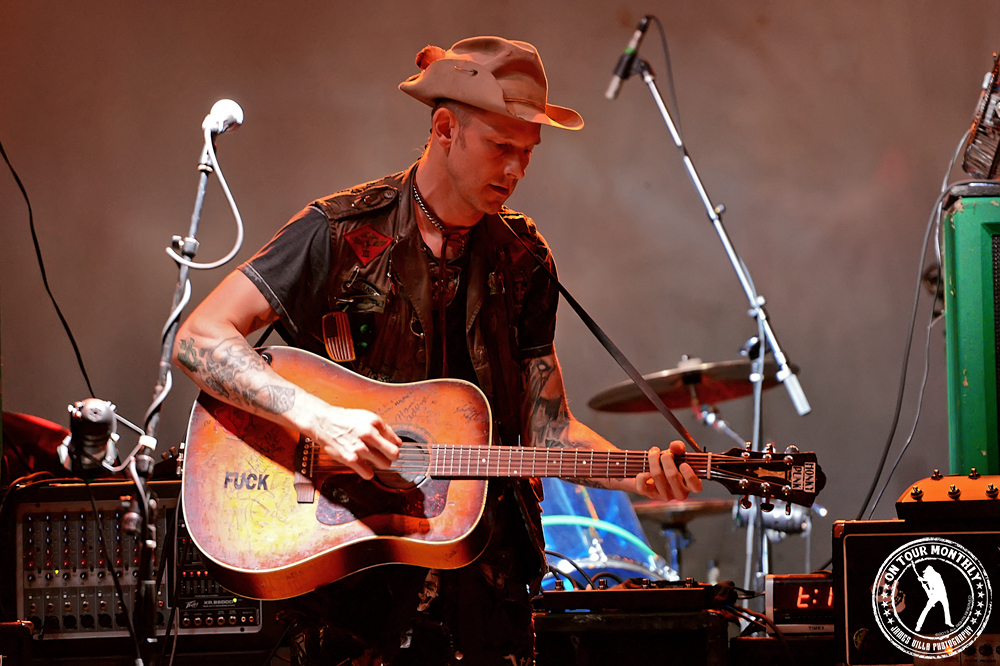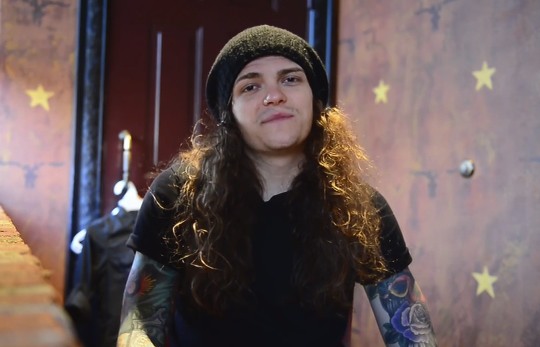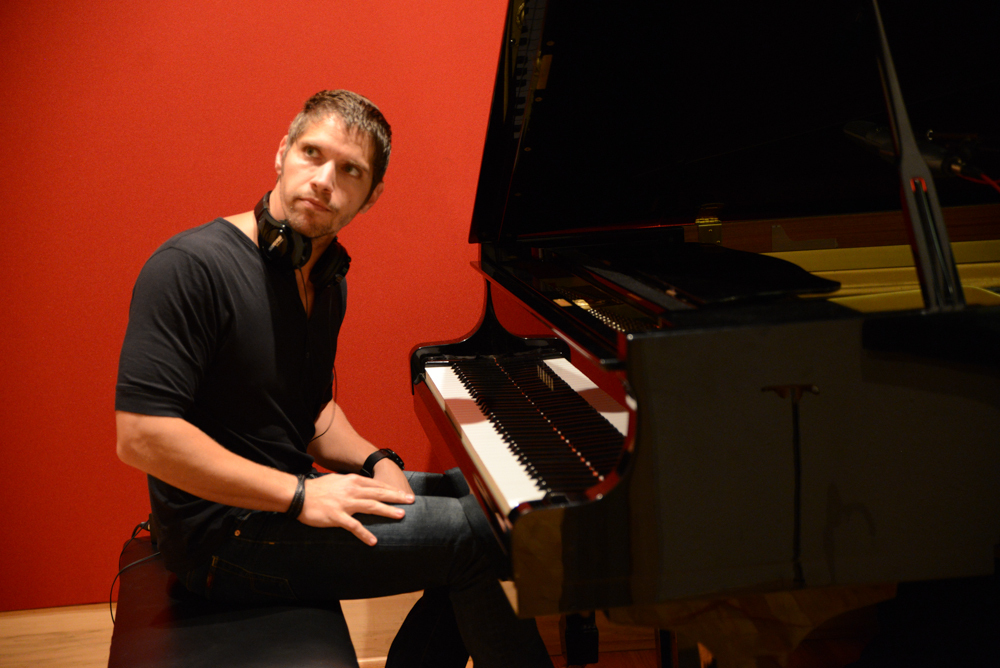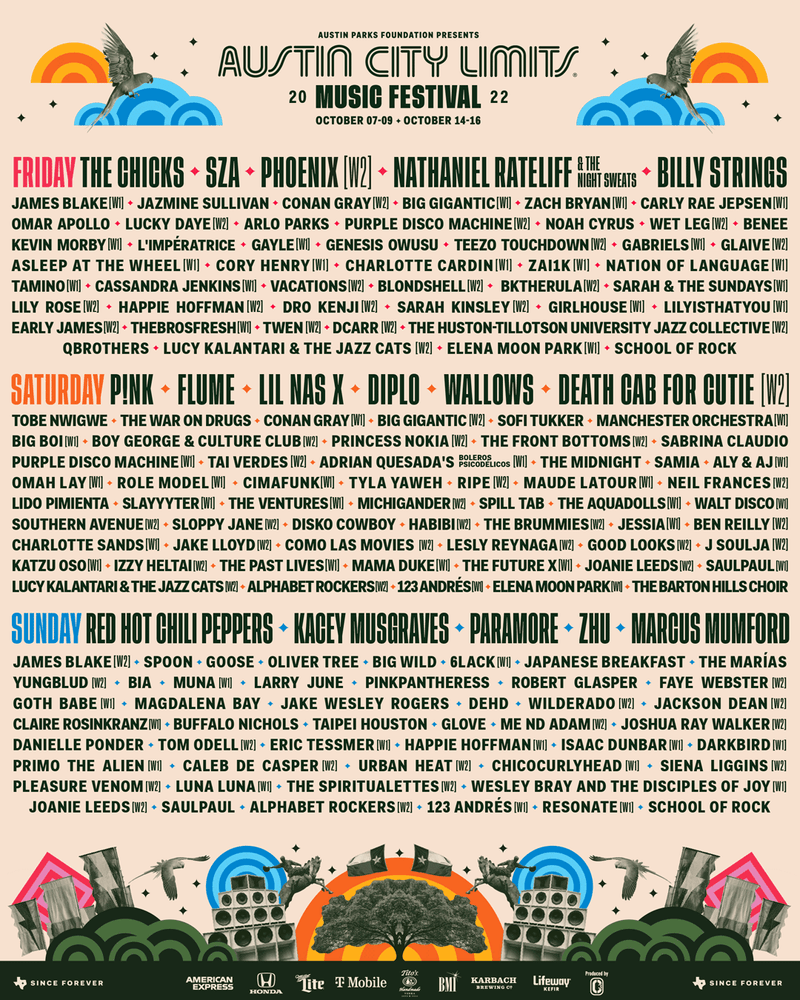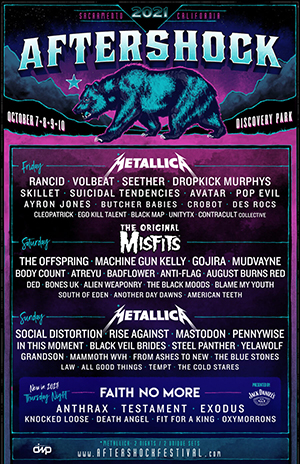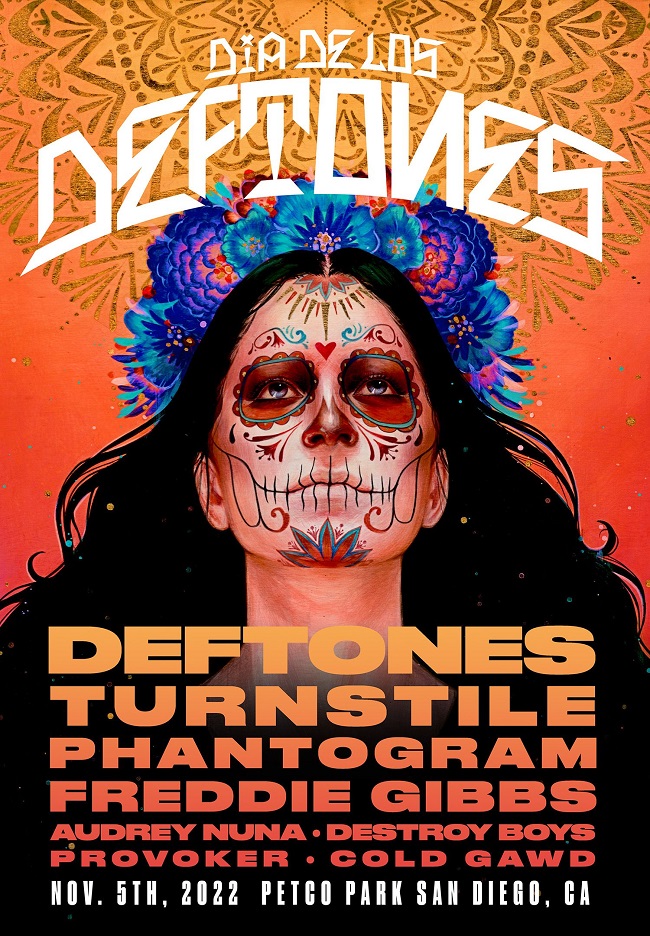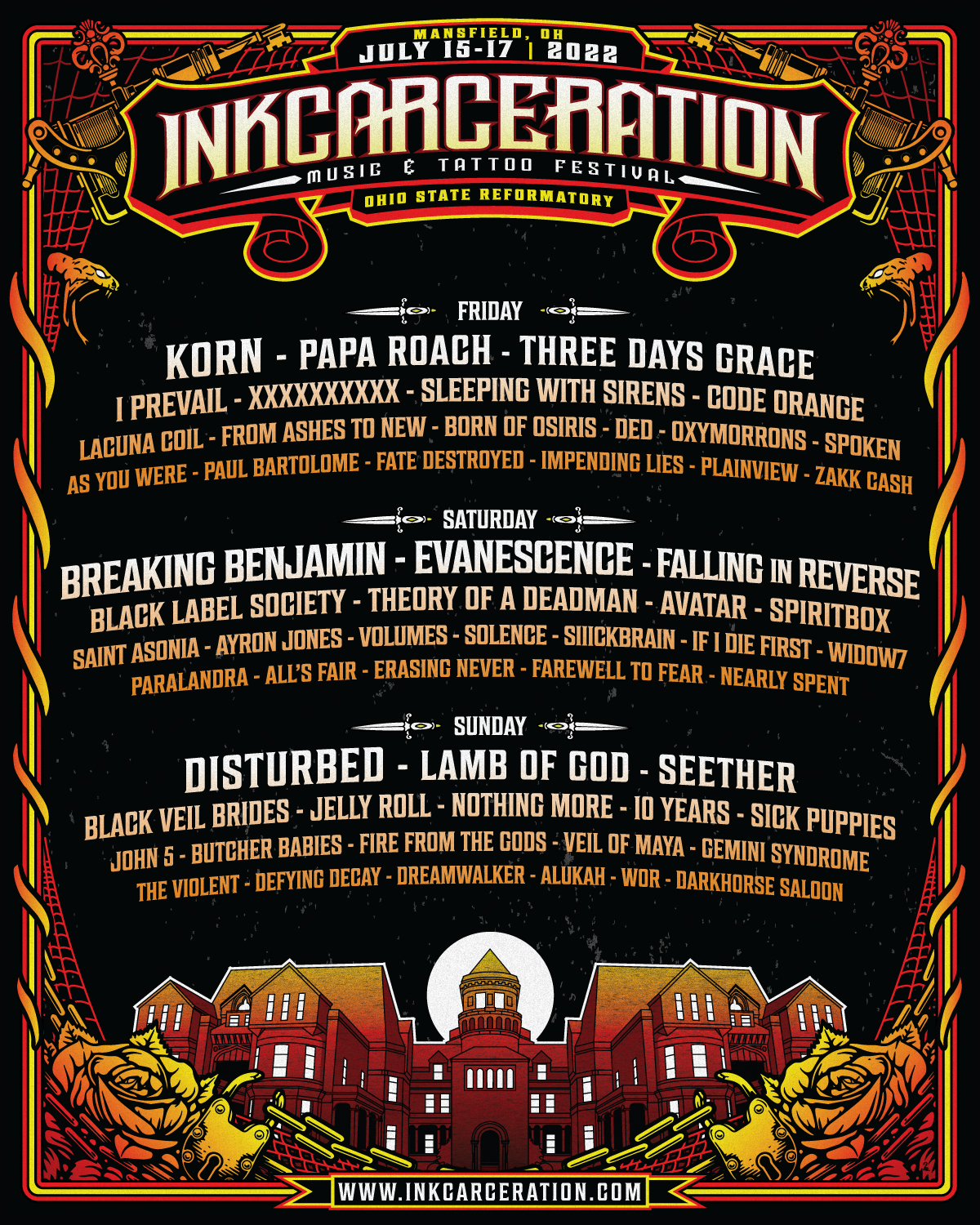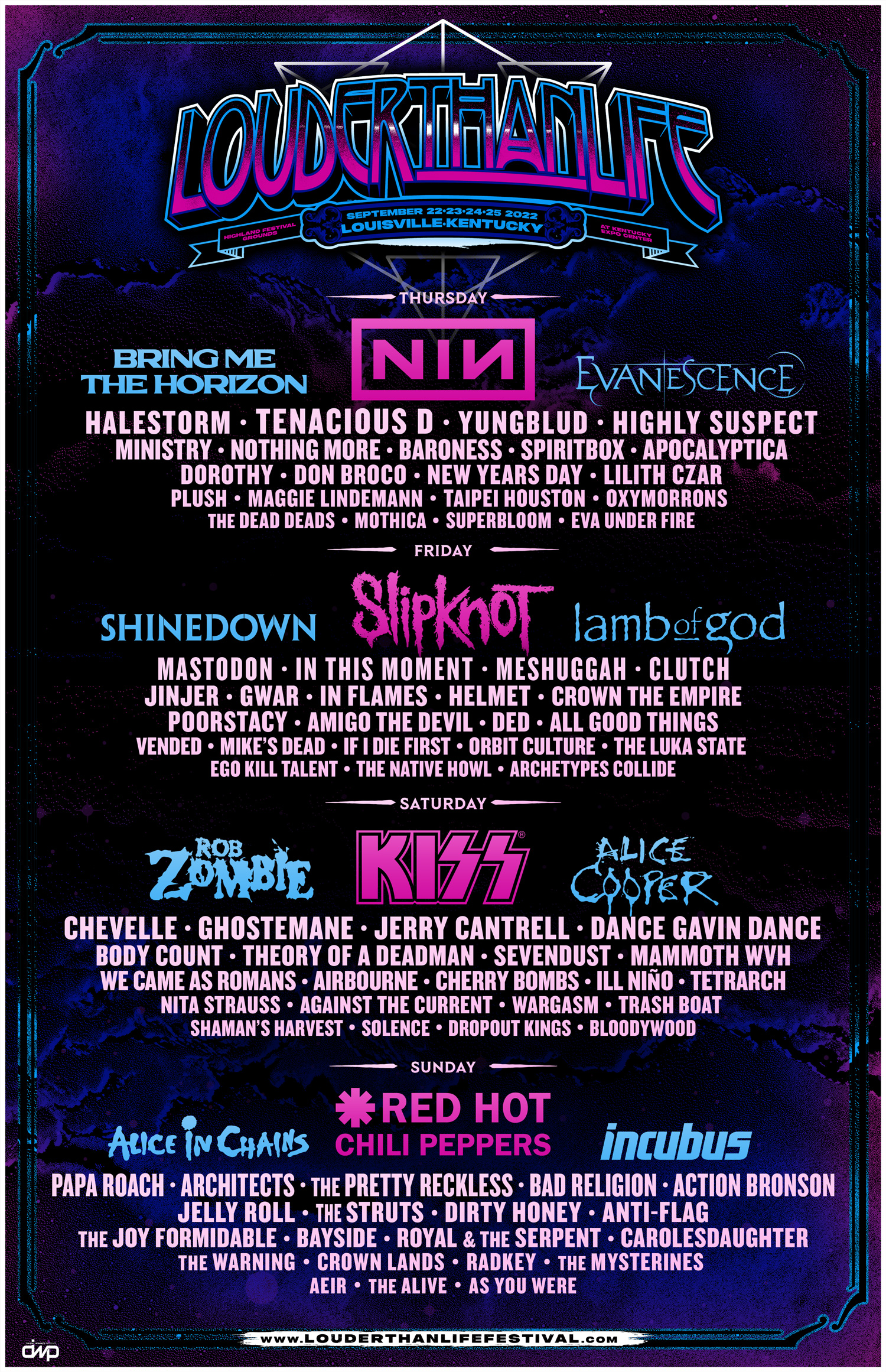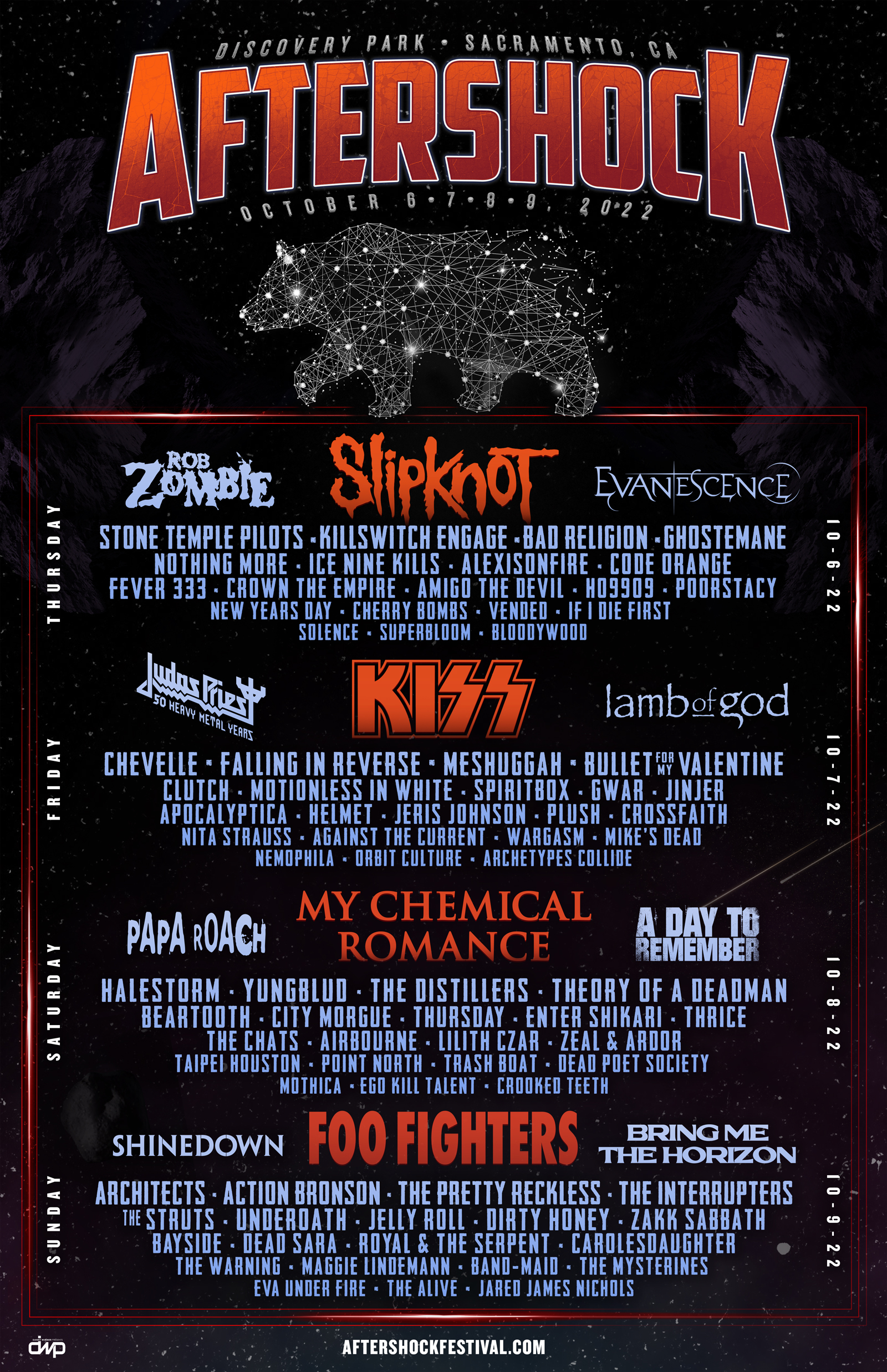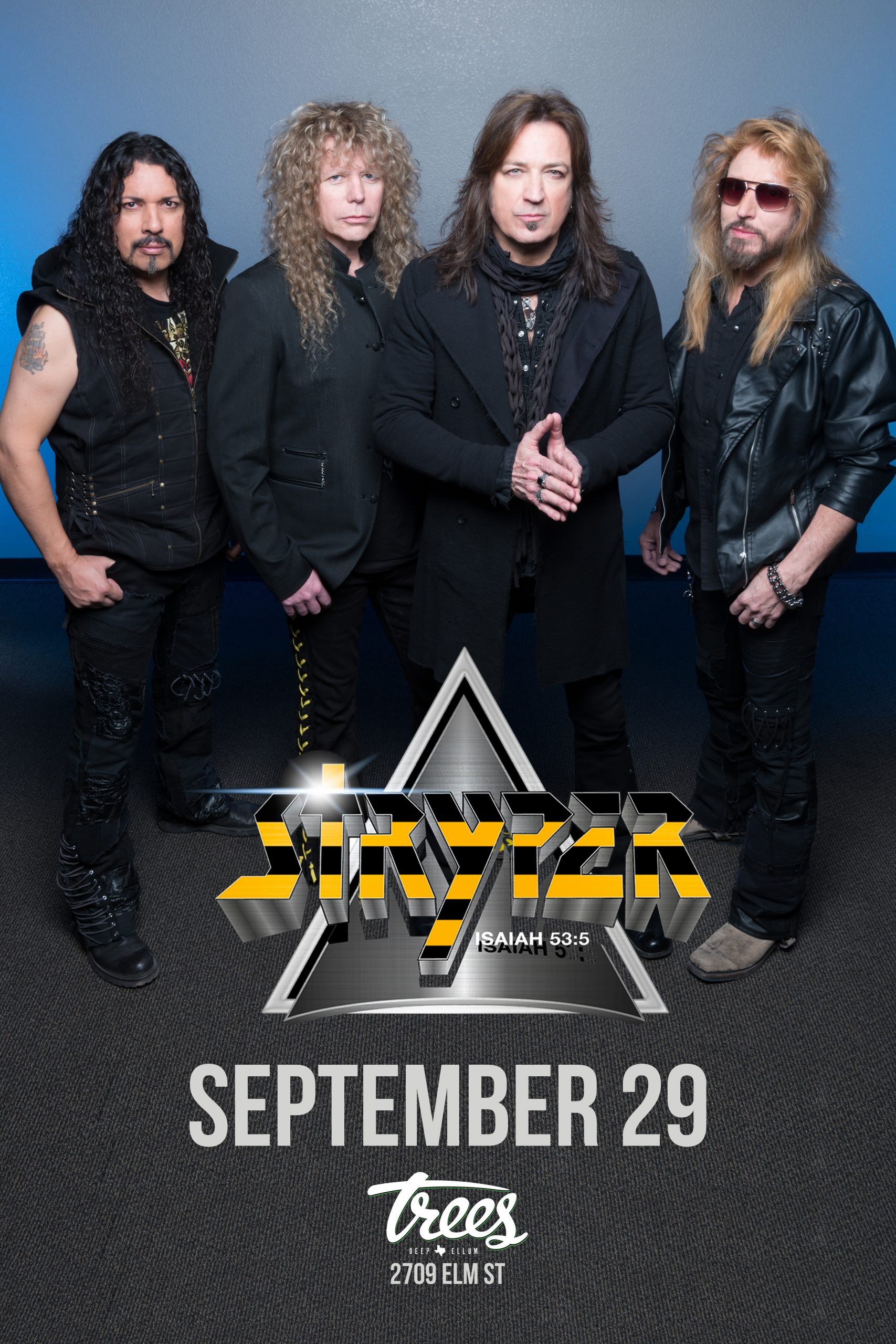– Interview By On Tour Monthly / Photos by James Villa –
There aren’t many enigmas in the music business these days, especially when it comes to country music. Then again, when you carry the name of Hank Williams on your shoulders, carrying on that musical rebel streak is literally a family tradition.
Shelton Hank Williams, also known as Hank Williams III or Hank 3, feels the weight of his family name every time he opens his mouth to sing. And like his father and grandfather before him, he’s made sure to do it his way as well. A gifted multi-instrumentalist, Williams is comfortable fronting a band, or sitting back and banging away on the drums. In addition to his honky-tonk recordings, Williams’ style alternates between country, punk and metal. He is the principal member of the punk metal band Assjack, the drummer for the Southern hardcore punk band Arson Anthem, and was the bassist for Pantera singer Phil Anselmo‘s band, Superjoint Ritual. He has released five albums on his own, and an additional seven for Curb Records.
It’s the live performances however, that sets this particular Hank apart from his legendary heritage. His typical three-hour shows are anything but that. A typical night includes a Jekyll and Hyde format with a set list designed to accommodate the venue and crowd. Some nights, he’ll please his rock fans first with a ‘hellbilly’ set that mixes in heavy doses of hard core punk. Afterwards, he’ll go back to his country roots, before finishing the evening off with a flurry of whatever he feels like playing. Indeed, these days Hank III marches to his own beat, and he’ll be the first one to tell you he’s better off for it. And so are his fans.
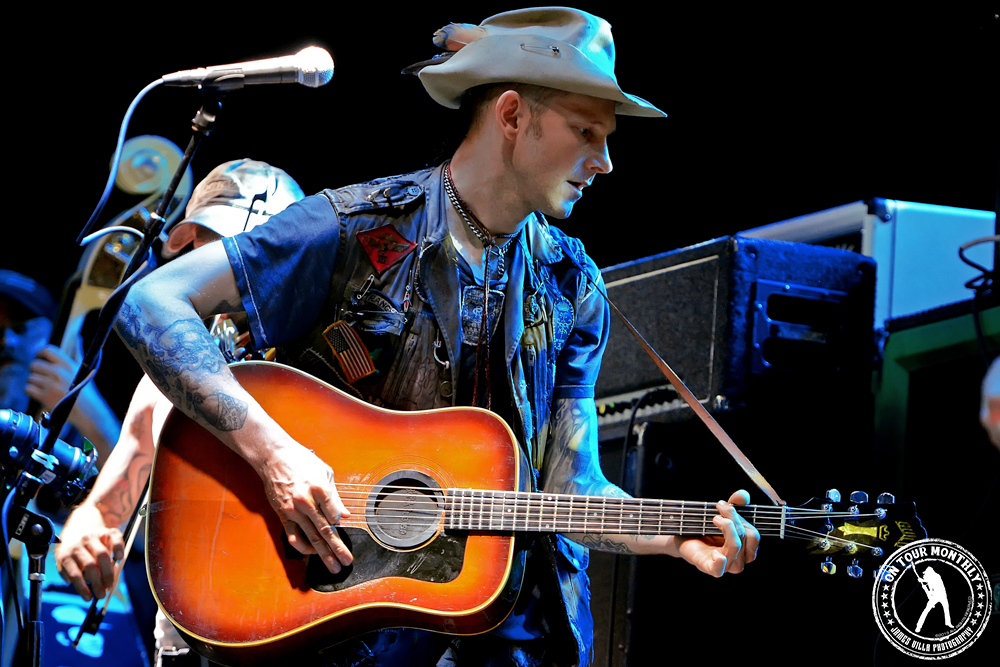
ON TOUR MONTHLY: The Internet has leveled the playing field as far as talent being heard today. Has that allowed an artist like yourself to find your voice, whether it’s the guitar or singing, and hone that talent without fear you won’t be heard?
Hank Williams III – It’s definitely a new beginning for me. The second I was done with Curb Records, it started all over for me. I am creatively free. I’m able to deliver more to my fans. I refused to sell Curb products on at merchandise table during shows. I only had my own CD I made 14 years ago up there for sale. So yes, this is a new beginning. The Internet is providing an outlet for all true musicians to work for themselves and put their products out there without restrictions. You don’t need major companies, and all that stuff, to play music and be heard. I think that in itself is awesome. In the old days, the lawyers outsmarted the musicians and took over the business. That’s when it got ruined and lost its luster. Nowadays, the musicians are able to take it back.
OTM: Did you find yourself in the ticket selling business as much as you do the music business these days?
At the end of the day, I tour to tour. It’s the highs and lows. I can still show up in spots in Missouri and barely get 50 people out there. But I make sure they get one hell of a show. As far as other things go, on ticket prices and sales, I make sure I put on the longest show for the cheapest ticket price. Back in the day it started for $7 bucks a ticket which would cover the cost of running a bus, running a crew. Nowadays I can run a crew and bus for $24, a maximum of $28. So I’m still making sure my fans can come out, buy a beer, get their girl in, buy a tee shirt and at the end of the night, still have a little bit of money in their pocket.
OTM: Most artists on the road throw out a price and hope it sticks. You on the other hand, break down the physical costs of going on the road, then scale your tickets to cover costs.
I think over the years people have respected me for playing to the working man, and taking care of the working man. After all my shows, I shake every hand and thank everyone for coming out. It’s the only marketing plan I ever had – doing it the old country way. That’s the truth of it. In this economy now, people can’t afford $200 to go out to a concert and sit down. That’s a huge production with a million lights and fancy stage production. In reality, people just want to see the artist. Yeah, those big shows are nice and all that, but keeping it simple and keeping it real is what we do. I think a lot of artists get lost in some of that other stuff and forget about what it’s all about as far as a live show goes.
OTM: Talking to you right now, you seem quite energized, maybe more energized as a musician than you have been in the last ten years. Is it my imagination, or am I hearing a sense of energy in your voice?
It’s definitely intense. My guard is still up every day. I just happen to go, go, go! There hasn’t been much of a break since I was free from Curb to pursue my career. I am always ready to get back on the road and do what we do. I have always been a workaholic. It’s hard for me to sit still because I’ve always had this nervous energy. I’m half tired and half excited – a little country and a little hard rock.
OTM: Literally, you are a chameleon who can change his style of music at the drop of a hat. Your ability to interpret and play several styles of music, whether it’s punk, rock or country, I would think, could cause more problems than it would solve them. Do you ever worry you’ll have an identity crisis?
Not for me. I make sure the first 90 minutes of my show I respect my country fans. I always make sure I do that. The rest of the show, however, I change it up. If I was just a country singer, I wouldn’t be what I am today. If I was just a heavy metal guy, I wouldn’t have the diverse audience from 18 to 80 that I have. So being different and outside of the box, marching to my own drum, has given me a unique identity. Really, that versatility just goes to show I’m a musician and I like doing different things.
OTM: I think you have created a new definition for the word ‘versatility.’
The really great artists play on all different kinds of records. Les Paul or Eric Clapton for instance, they could play rock, country and the blues. I’m doing the same thing just in a different kind of way. Even my grandfather played rock and roll back in the day before it was even coined rock and roll. I am keeping the structure true, except I’m just exploring different avenues of music that others consider unconventional for a country artist. Some get it, some don’t.
OTM: You and Curb seemed to have gone into this type of shotgun marriage back in the mid ‘90s. Did you know going into the deal you would have to compromise who you are?
The first time I met Mike Curb, it was on a race track in Charlotte, North Carolina. I was 12 years old. Since he worked with my dad for so long, I thought he was going to be way cooler to work with than he turned out to be. At the time, I figured if he worked with Hank Jr., then he knows a little about rebelliousness and things like that. Once they saw I knew what I wanted to do, and I didn’t need a producer to tell me what to do, that’s when things started going bad. At the end of the day, it doesn’t matter if it was me, or Merle Haggard, Junior Brown or Bill Watson, right now, a lot of people don’t have a lot of positive things to say about Curb Records. For instance, look at Tim McGraw. He has made that company millions and millions and millions of dollars, but it still wasn’t enough. They are sued him, raking his name through the coals in a big lawsuit. That says it all. Come on, are you really going to be that greedy? Mike Curb was a better politician than he ever was a musician.
OTM: Do you think you were initially signed to Curb because they thought they were getting a hybrid of your dad and grandfather?
Okay, here’s the deal! Here is the main reason I went to Curb. I had a manager at the time named Jack McFadden. Jack had Johnny Paycheck for 20 years, Buck Owens for almost 35. I already met Mike, so Jack goes to me and says, “Shelton, I can go straight to Mike Curb in Nashville and I don’t have to deal with New York or L.A.” I said okay. You also need to know that at the time, I was served paternity papers for a one-night stand I’d had. This woman had waited three years to tell me I had a son. On stage, I was served paternity papers and they took me to court. I was told I owed $60,000 in back support. I was a punk rock kid playing in a punk rock band barely making $100 every two weeks. I had to come up with $400 child support a month, pay insurance, pay doctors and the $60 grand in back pay.
OTM: Talk about putting a loaded gun to your head.
No kidding. I had no choice but to sign with Curb Records. I was not going to be a deadbeat dad that didn’t take care of his son. So yes, I got into bed with Curb for the money aspect of it. I figured I could later on do rock and mix it up again. The first two to four years of my career, I was strictly doing family shows, fairs, casinos, all these safe shows, until I got the majority of the back child support paid off. I had a judge tell me, “Boy, playing music is no real job.” I thought to myself, “Oh really. I will show you what kind of a real job it can be.” In my eyes, by the time you are 25 in the rock and roll world, you are old. I wanted to rock out at first, then do my country and grow old with my country fans. But I had that reversed on me, and it actually worked out for the best. It helped me forge a unique career, helped me carve my hillbilly sound and it made it a little more special. Getting back to the point however, the reason I signed with Curb was to take care of my son, and get the monies straightened out with the mother.
OTM: How has that worked out over the years with your son?
He knows I’m there for him and he’s going to college now. We have a great relationship.
OTM: Congratulations on doing what you had to do.
That’s the mystery of the why with Curb. Then I started being a rebel. The thing is, those kinds of issues are always there.
OTM: Your family history – have you ever felt it was an albatross around your neck?
Here’s the thing. It could be me, or Frank Sinatra’s boy. It’s always tough when you’re named after a really strong icon, especially when you are dealing with two of them like I have had to. Obviously I never met my grandfather. I only know him like any other Hank Williams fan knows him, through his music. As for Hank Jr., I wasn’t around him that much. I respect him as a musician, and he’s done an amazing amount of work. I just was never that close to him. I was raised more by my mama and her father up in Missouri. I am proud of where I come from. People see that I am from a big family name, but I’m down to earth, easy to talk to and not arrogant.
OTM: You seemed to have handled the burden of the family name quite well.
There is a guy named Don Kelly who has been playing lower Broadway for over 28 years here in Nashville. He told me recently that I was the same guy he met when I was 15 years old playing around town. I hadn’t changed a bit. He couldn’t say that for a lot of other people in my line of work and told me to hang in there and do what I did best. Little things like that give you the confidence to keep going. I have had my heroes jerk me around, snub me, and I never wanted to be like that to my fans, or my friends. I feel fortunate to still be in a line of work I truly love doing.
OTM: I always felt the term ‘growing up’ is overrated. I am sure that scenario is a double whammy when you carry the weight of two historic names on your shoulders.
Let’s just say it has been interesting. I have always had the motto of try to live like I’m 17. Now it has changed a bit over the years, but being a musician, I’ll always be young at heart. It doesn’t matter if it’s me, or David Alan Coe, there’s always that little glint in the eyes of thinking young.
OTM: You met with the hard rock label Megaforce Records and explained your vision to them. Can you tell me what it is you said to them that they fully understood?
I told them they couldn’t just put me in one genre. I do all kinds of work and I am going to make quite a few different records. I didn’t want to be held back. If I wanted to make sci-fi records then let me. If I went country with one, then respect me enough to allow that to happen. I had just been with a label for 14 years that didn’t respect me as an artist. I want to work with people that are proud to work with me. I liked Megaforce because they were small and it felt more grassroots to me. They know I’m not going to give them a No. 1 hit. I play music because I love it. If they wanted to make a lot of money off me, then I wasn’t going to be their guy. I march to my own beat and they identified with that.
OTM: It is one thing to be different Hank, but you can take the vision too far. For instance, Neil Young created a solid identity with his music throughout the ‘70s. He then went all electronic with this Tron thing in the early ‘80s when he switched labels to Geffen Records. They ended up suing him and fans stayed away from Neil in droves because he had taken his vision to the extreme. In that same context, do you have to be careful you don’t cross the line so much you totally lose your fans?
I don’t think so. There are no rules with what I do. At the end of the day, I make music for myself. I try to identify with a lot of fans, but if I started approaching my music with caution then that’s not really being fully creative. People know I am a fan of way too many styles of music to ever worry about that – especially in this day and time. There are too many types of extreme music out there, and to be honest, my fans are pretty extreme. I don’t put rules on my stuff. Obviously doing a country record there’s going to be some standard ways to approach the music. On this last record I put out, there are about five country songs on it. The rest are different, outside of the box tunes than a majority of my fans are used to. But most of my heroes, The Melvins, Mike Patton, Pink Floyd, they took it to the next level. I have always played for the outsiders, the rebels. I am not playing for the masses. If I ever started thinking like that, I’d be in trouble.
OTM: What is real country?
Real country is being pure with the sound and keeping the words simple. They lyrics are raw, deep and emotional. It is music you can actually eat, sleep and breathe. Those country artists that stage big productions, that’s not real country to me. It’s the pure, heartfelt music singing to the working people, and living through something and writing about it – that’s real country!
OTM: Are you ahead of the curve with your brand of country music?
Most of my fans are rock oriented. I try to put on a high energy show. A lot of my songs have a bluegrass kind of feel to them with a really fast rhythm. I haven’t slowed down any either. Now if I’m at a boot scootin’ bar, and people are trying to waltz or dance, I can play a bunch of slow depressing songs. The way I look at it. I’m trying to get these people to forget about their problems for a while. I want them to have some fun and leave the venue with an experience they won’t forget. If you want some pure country music, some swinging country music, the go catch Wayne “The Train” Hancock or Dale Watson. Honestly, it’s hard finding the purest, but they are out there. I am not a purist. I deal with both sides. I can do a little bit of everything. I always tell ladies coming to my shows to not wear open-toe shoes. That’s the best advice I can give you. The environment can get a little rough out there when I am performing.
OTM: Do you adapt your set lists to the venues you are playing in?
I don’t know have a set list. I call out the songs I’m going to play. A lot of the music we play depends upon my voice. If it’s a little rough the particular night of a show, I’ll call a different set of songs. I’m doing my best to get my singing voice back, so it varies. Really, it all goes down to respect for the audience and the venue that has booked me. Most of the time, places that book Hank III know exactly what they are getting.
OTM: Is there any routine you conduct to keep your voice in shape for the road warrior treks you undertake?
Honestly, I save my voice for the stage. The moment my show ends, I can’t talk until the next day. My voice coach tells me to not talk. During a set, I try to deliver three or four voices to cover the different styles of music that I perform. Those particular voices sometimes disappear on me, and that’s the biggest fight I have while I’m on tour. The worse feeling in the world, for me, is not being able to deliver the show I want to for an audience. It makes me feel like I’m ripping off my audience. They know I’m not feeling my best all the time, and I’ll let them know when I’m up on stage how the voice is doing. Regardless, I’ll give them a balls-to-the-wall performance.
This is the only time in my career, and I’ve been on the road since 1994, that I actually started to tour a day before my record came out. Never have I done that. By sheer coincidence it worked out that I got my business together, and all these records rolling out at the same time.

